To avoid having to pay GST on the purchase price in a sale of business, the sale must satisfy the ‘going concern’ exemption.
‘Going Concern’ Exemption
The relevant legislation provides that a sale of a going concern is GST free if:
To avoid having to pay GST on the purchase price in a sale of business, the sale must satisfy the ‘going concern’ exemption.

To avoid having to pay GST on the purchase price in a sale of business, the sale must satisfy the ‘going concern’ exemption.
The relevant legislation provides that a sale of a going concern is GST free if:
Notwithstanding sale of business contracts generally provide that the purchaser is liable for any GST payable, it is the vendor that is required to remit the GST to the tax office and therefore, has the burden of the risk that a transaction may not be viewed as the supply of a going concern. The vendor’s solicitor should, therefore, ensure the purchaser is registered for GST.
The requirement for a written agreement between the parties needs to be satisfied prior to the completion of the sale. While it is possible to record a transfer after the fact, for example if a business has been restructured to a related entity the parties may look to document the transfer at a later date, such a transfer would not satisfy the ‘going concern’ exemption. As such, prior to any restructure, you should always seek advice from your accountant and lawyer so that taxation and asset protection matters can be properly considered and dealt with prior to a transfer completing.
All things necessary for the continued operation of the business does not mean that absolutely everything in the business must be transferred, but refers to those things which make the business function in its normal course. Each business will require different things for its continued operation, but typically the following should be included in the sale of business:
Of note, the above provisions relate to the transfer of activities that may not traditionally be thought of as a business, including leasing, licensing, trading operations or charitable activities.
If the business being sold is part of a bigger enterprise, it is critical that the vendor and purchaser make sure the business being sold is capable of operating independently from the main enterprise, and namely that all things necessary for the continued operation of the business are transferred in the sale. In order for this to occur, there may well need to be additional documentation and agreements that come into effect at the time of completion, such as a new lease or a license agreement.
Additionally, a single purchasing entity and a single selling entity are required for the GST going concern exemption to apply. Advice should therefore be obtained if related entities own different parts of the business being sold as the sale may not qualify for the going concern exemption.
It is best to consult your Accountant and Lawyer before entering into any contract for sale of business, whether you are the vendor or purchaser, to make sure the criteria for the Going Concern exemption is satisfied.



The information in this article is not legal advice and is intended to provide commentary and general information only. It should not be relied upon or used as a definitive or complete statement of the relevant law. You should obtain formal legal advice specific to your particular circumstance. Liability limited by a scheme approved under Professional Standards Legislation.



